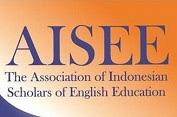THE IMPACT OF CHATGPT ON STUDENTS’ WRITING SKILL IN ENGLISH LEARNING STUDY
DOI:
https://doi.org/10.36706/jele.v11i2.49Keywords:
AI-integrated education, ChatGPT, English language learning, writing skillsAbstract
The rapid advancements in artificial intelligence (AI) have notably transformed education, particularly through tools like ChatGPT. As AI becomes integrated into classrooms, its potential to enhance language learning, especially writing skills, warrants investigation. Writing is essential for language proficiency, yet many students struggle to develop effective writing abilities. ChatGPT, capable of generating human-like text and providing feedback, offers innovative avenues for improving students' writing skills and overall language acquisition. This study aimed to assess the impact of ChatGPT on English language learners' writing abilities using a quasi-experimental design with a pretest-posttest non-equivalent group, involving 71 students (36 in the control group and 35 in the experimental group). Results indicated a significant improvement in the writing scores of the experimental group after using ChatGPT, confirmed by paired-sample t-test analysis. The experimental group also outperformed the control group in the posttest, demonstrating ChatGPT's effectiveness in enhancing writing skills. Additionally, improved reading comprehension was observed in the experimental group, suggesting that ChatGPT may facilitate overall language proficiency. While the study highlights the promise of AI tools like ChatGPT, it acknowledges limitations in sample size and scope, indicating a need for further research on the long-term effects of ChatGPT across diverse educational contexts.
References
Aldossary, K. (2024). Factors influencing secondary school students’ efl writing in saudi arabia. World Journal of English Language, 14(5), 87-97. https://doi.org/10.5430/wjel.v14n5p87
Alharbi, W. (2023). Ai in the foreign language classroom: a pedagogical overview of automated writing assistance tools. Education Research International, 2023, 1-15. https://doi.org/10.1155/2023/4253331
Alnasser, S. M. N. (2022). Efl learners’ perceptions of integrating computer-based feedback into writing classrooms: evidence from saudi arabia. Sage Open, 12(3), 1-14. https://doi.org/10.1177/21582440221123021
Ali, J. K. M. (2022). The impact of online learning amid covid-19 pandemic on student intrinsic motivation and english language improvement. Dirasat: Human and Social Sciences, 49(6), 125-134. https://doi.org/10.35516/hum.v49i6.3726
Banegas, D. L., Loutayf, M. S., Alemán, M. J., & Roberts, G. (2020). Can writing for publication improve student-teachers’ english (l2) language proficiency?. Journal of Education for Teaching, 46(3), 411-413. https://doi.org/10.1080/02607476.2020.1733399
Bonsu, E. M., & Baffour-Koduah, D. (2023). From the consumers’ side: determining students’ perception and intention to use ChatGPT in ghanaian higher education. Research Square, 1-14. https://doi.org/10.21203/rs.3.rs-2686760/v1
Cardon, P., Fleischmann, C., Aritz, J., Logemann, M., & Heidewald, J. (2023). The challenges and opportunities of ai-assisted writing: developing ai literacy for the ai age. Business and Professional Communication Quarterly, 86(3), 257-295. https://doi.org/10.1177/23294906231176517
Chan, C. K. Y., & Hu, W. (2023). Students’ voices on generative ai: perceptions, benefits, and challenges in higher education. International Journal of Educational Technology in Higher Education, 20(43), 1-18. https://doi.org/10.1186/s41239-023-00411-8
Corsello, A., & Santangelo, A. (2023). May artificial intelligence influence future pediatric research?—the case of ChatGPT. Children, 10(757), 1-5. https://doi.org/10.3390/children10040757
Darma, R. N., Syahid, A., Fatma, Ayu Putriana Lestari, Ahmad Basahil, & Rini Listiya Ningrum (2023). The student’s perception of using ChatGPT for efl students. Jurnal Ilmu Pendidikan Nasional (JIPNAS), 1(3), 143-146. https://doi.org/10.59435/jipnas.v1i3.193
de Winter, J. C. F. (2023). Can ChatGPT pass high school exams on english language comprehension?. International Journal of Artificial Intelligence in Education, 34(3), 915-930. https://doi.org/10.1007/s40593-023-00372-z
Dhanvijay, A. K. D., Pinjar, M. J., Dhokane, N., Sorte, S. R., Kumari, A., & Mondal, H. (2023). Performance of large language models (ChatGPT, bing search, and google bard) in solving case vignettes in physiology. Cureus. https://doi.org/10.7759/cureus.42972
Hwang, W., Nurtantyana, R., Purba, S. W. D., Hariyanti, U., Indrihapsari, Y., & Surjono, H. D. (2023). Ai and recognition technologies to facilitate english as foreign language writing for supporting personalization and contextualization in authentic contexts. Journal of Educational Computing Research, 61(5), 1008-1035. https://doi.org/10.1177/07356331221137253
Jiang, D. and Kalyuga, S. (2022). Learning english as a foreign language writing skills in collaborative settings: a cognitive load perspective. Frontiers in Psychology, 13, 1-13. https://doi.org/10.3389/fpsyg.2022.932291
Jo, C. W. (2021). Exploring general versus academic english proficiency as predictors of adolescent efl essay writing. Written Communication, 38(2), 208-246. https://doi.org/10.1177/0741088320986364
Kostka, I., & Toncelli, R. (2023). Exploring applications of ChatGPT to english language teaching: opportunities, challenges, and recommendations. Teaching English as a Second or Foreign Language, 27(3). https://doi.org/10.55593/ej.27107int
Kormos, J. (2023). The role of cognitive factors in second language writing and writing to learn a second language. Studies in Second Language Acquisition, 45(3), 622-646. https://doi.org/10.1017/s0272263122000481
Krajka, J., & lszak, I. (2024). “ai, will you help?” how learners use artificial intelligence when writing. XLinguae, 17(1), 34-48. https://doi.org/10.18355/xl.2024.17.01.03
Li, B., Kou, X., & Bonk, C. J. (2023). Embracing the disrupted language teaching and learning field: analyzing youtube content creation related to ChatGPT. Languages, 8(197), 1-18. https://doi.org/10.3390/languages8030197
Liu, B. (2023). Chinese university students’ attitudes and perceptions in learning english using ChatGPT. International Journal of Education and Humanities, 3(2), 132-140. https://doi.org/10.58557/(ijeh).v3i2.145
Li, J., Zong, H., Wu, E., Wu, R., Peng, Z., Zhao, J., & Shen, B. (2024). Exploring the potential of artificial intelligence to enhance the writing of english academic papers by non-native english-speaking medical students - the educational application of ChatGPT. BMC Medical Education, 24(1). https://doi.org/10.1186/s12909-024-05738-y
Mahmud, F. A. (2023). Investigating efl students' writing skills through artificial intelligence: wordtune application as a tool. Journal of Language Teaching and Research, 14(5), 1395-1404. https://doi.org/10.17507/jltr.1405.28
Nazim, M. (2024). Exploring efl teachers’ insights regarding artificial intelligence driven tools in student-centered writing instructions. International Journal of English Linguistics, 14(3), 93-107. https://doi.org/10.5539/ijel.v14n3p93
Nguyễn, T. T. H. (2023). Efl teachers’ perspectives toward the use of ChatGPT in writing classes: a case study at van lang university. International Journal of Language Instruction, 2(3), 1-47. https://doi.org/10.54855/ijli.23231
Nita, S., Sussolaikah, K., & Aldida, J. D. (2023). The role of artificial intelligence-based technology with ChatGPT as an educational learning media innovation in indonesia. International Journal of Multidisciplinary Sciences and Arts, 2(2), 235-241. https://doi.org/10.47709/ijmdsa.v2i2.3333
Pham, V. P. H., & Le, A. Q. (2024). ChatGPT in language learning: perspectives from vietnamese students in vietnam and the usa. International Journal of Language Instruction, 3(2), 59-72. https://doi.org/10.54855/ijli.24325
Selim, A. S. M. (2024). The transformative impact of ai-powered tools on academic writing: perspectives of efl university students. International Journal of English Linguistics, 14(1), 14-29. https://doi.org/10.5539/ijel.v14n1p14
Shafiee, S., Mobini, M., Namaziandost, E., & Ghodoosi, S. (2020). Contribution of multiple intelligences to l2 writing of efl learners. International Journal of Linguistics, Literature and Translation, 3(6), 59-69. https://doi.org/10.32996/ijllt.2020.3.6.7
Song, C., & Song, Y. (2023). Enhancing academic writing skills and motivation: assessing the efficacy of ChatGPT in ai-assisted language learning for efl students. Frontiers in Psychology, 14, 1-14. https://doi.org/10.3389/fpsyg.2023.1260843
Talayhan, Ö. G. (2023). Yapay zekâ yazma araçlarının öğrenci yazılarının i̇çeriği ve organizasyonu üzerindeki etkisi: yabancı dil olarak i̇ngilizce eğitmenlerinin algılarına odaklanması. Journal of Current Debates in Social Sciences, 2(2), 83-93. https://doi.org/10.29228/cudes.71701
Veras, M., Dyer, J., Rooney, M., Barros Silva, P. G., Rutherford, D., & Kairy, D. (2023). Usability and efficacy of artificial intelligence chatbots (ChatGPT) for health sciences students: protocol for a crossover randomized controlled trial. JMIR Research Protocols, 12, 1-11. https://doi.org/10.2196/51873
Wang, C. (2024). Exploring students’ generative ai-assisted writing processes: perceptions and experiences from native and nonnative english speakers. Technology, Knowledge and Learning. https://doi.org/10.1007/s10758-024-09744-3
Wang, X., Gong, Z., Wang, G., Jia, J., Xu, Y., Zhao, J., & Li, X. (2023). ChatGPT performs on the chinese national medical licensing examination. Journal of Medical Systems, 47(1). https://doi.org/10.1007/s10916-023-01961-0
Xu, X., Chen, Y., & Miao, J. (2024). Opportunities, challenges, and future directions of large language models, including ChatGPT in medical education: a systematic scoping review. Journal of Educational Evaluation for Health Professions, 21(6), 1-11. https://doi.org/10.3352/jeehp.2024.21.6
Zhan, J., Sun, Q., & Zhang, L. J. (2021). Effects of manipulating writing task complexity on learners’ performance in completing vocabulary and syntactic tasks. Language Teaching Research, 28(3), 1011-1032. https://doi.org/10.1177/13621688211024360
Downloads
Published
Issue
Section
License
Copyright (c) 2025 The Journal of English Literacy Education: The Teaching and Learning of English as A Foreign Language

This work is licensed under a Creative Commons Attribution-ShareAlike 4.0 International License.













